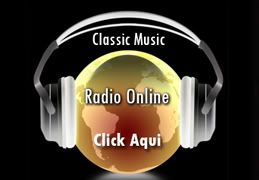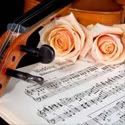Canto e a recuperação de pacientes que sofreram AVCs:

Cientistas afirmam que cantar pode contribuir para a recuperação de pacientes que sofreram AVCs:
"Cantar palavras" tornou -se mais fácil para os pacientes em recuperação do avc.
O Ensino do canto para de doentes com AVC "reestrutura" o cérebro, ajudando-os a recuperar a sua fala, dizem cientistas.
Ao cantar, os pacientes usam uma área diferente do cérebro da área envolvida na fala.
Se o centro de fala de uma pessoa "é danificado por um acidente vascular cerebral, eles podem aprender a usar o seu centro do canto" .
Os pesquisadores apresentaram os resultados na reunião anual da Associação Americana para o Avanço da Ciência (AAAS), em San Diego.
Um ensaio clínico em curso, mostrou como o cérebro responde a essa terapia de entonação "melódica".
Gottfried Schlaug, professor de Neurologia do Beth Israel Deaconess Medical Center e da Harvard Medical School, em Boston, E.U., conduziu o julgamento.
A terapia já está estabelecida como uma técnica médica. Pesquisadores usaram pela primeira vez quando foi descoberto que pacientes com AVC com danos cerebrais que os deixou incapaz de falar ainda eram capazes de cantar.
Professor Schlaug explicou que seu estudo foi o primeiro a combinar a terapia com imagens do cérebro - "para mostrar que está realmente acontecendo no cérebro", como os pacientes aprendem a cantar as suas palavras.
Fazendo conexões
A maioria das conexões entre áreas do cérebro que controlam o movimento e o controle da audição são, no lado esquerdo do cérebro.
"Mas há uma espécie de buraco correspondente no lado direito", disse o professor Schlaug.
Dr Aniruddh Patel, neurocientista
"Por alguma razão, o lado esquerdo é usado muito mais no discurso.
"Se você danificar o lado esquerdo, no lado direito tem o problema [cumprindo esse papel."
Mas como os pacientes aprendem a colocar suas palavras para melodias, as conexões acontecem de forma crucial no lado direito do cérebro.
Durante as sessões de terapia, os pacientes são ensinados a colocar as suas palavras para melodias simples.
Professor Schlaug disse que após uma única sessão, doentes com AVC, que não são capazes de formar qualquer palavra inteligível aprendeu a dizer a frase "Tenho sede", combinando cada sílaba com a nota de uma melodia.
Os pacientes também são incentivados a tocar a cada sílaba com as próprias mãos. Professor Schlaug disse que isso , fez o tratamento ainda mais eficaz.
"A música pode ser um meio alternativo para envolver as partes do cérebro que são de outra forma não engajados", disse ele.
Brain sons
Dr Aniruddh Pereira, do Instituto de Neurociências de San Diego, disse que o estudo foi um exemplo de que a explosão "na investigação sobre a música eo cérebro" durante a última década.
"Às vezes as pessoas perguntam onde a música no cérebro é processada ea resposta está em toda parte acima do pescoço", disse Patel.
"A música envolve enormes áreas do cérebro - não é só acender um ponto no córtex auditivo".
Dr. Nina Kraus, um neurocientista da Universidade Northwestern, em Chicago, também estuda os efeitos da música sobre o cérebro.
Em sua pesquisa, ela registra a resposta do cérebro à música utilizando eletrodos no couro cabeludo.
Este trabalho permitiu a ela a atividade elétrica de células do cérebro à medida que captam o som.
"Neurônios de trabalho com eletricidade - assim se você gravar a eletricidade do cérebro que você pode jogar para trás através de alto-falantes e ouvir como o cérebro lida com os sons", explicou ela.
Dr. Kraus também descobriu que o treinamento musical parece aumentar a capacidade de executar outras tarefas, tais como a leitura.
Ela disse que os insights sobre como o cérebro responde à música forneceu provas de que a formação musical foi uma parte importante da educação das crianças.
Singing 'rewires' damaged brain
By Victoria Gill
Science reporter, BBC News, San Diego
Singing words made it easier for stroke patients to communicate
Teaching stroke patients to sing "rewires" their brains, helping them recover their speech, say scientists.
By singing, patients use a different area of the brain from the area involved in speech.
If a person's "speech centre" is damaged by a stroke, they can learn to use their "singing centre" instead.
Researchers presented these findings at the annual meeting of the American Association for the Advancement of Science (AAAS) in San Diego.
An ongoing clinical trial, they said, has shown how the brain responds to this "melodic intonation therapy".
Gottfried Schlaug, a neurology professor at Beth Israel Deaconess Medical Center and Harvard Medical School in Boston, US, led the trial.
Cannot play media.You do not have the correct version of the flash player. Download the correct version
The therapy is already established as a medical technique. Researchers first used it when it was discovered that stroke patients with brain damage that left them unable to speak were still able to sing.
Professor Schlaug explained that his was the first study to combine this therapy with brain imaging - "to show what is actually going on in the brain" as patients learn to sing their words.
Making connections
Most of the connections between brain areas that control movement and those that control hearing are on the left side of the brain.
"But there's a sort of corresponding hole on the right side," said Professor Schlaug.
Music engages huge swathes of the brain - it's not just lighting up a spot in the auditory cortex
Dr Aniruddh Patel, neuroscientist
"For some reason, it's not as endowed with these connections, so the left side is used much more in speech.
"If you damage the left side, the right side has trouble [fulfilling that role]."
But as patients learn to put their words to melodies, the crucial connections form on the right side of their brains.
Previous brain imaging studies have shown that this "singing centre" is overdeveloped in the brains of professional singers.
During the therapy sessions, patients are taught to put their words to simple melodies.
Professor Schlaug said that after a single session, a stroke patients who was are not able to form any intelligible words learned to say the phrase "I am thirsty" by combining each syllable with the note of a melody.
The patients are also encouraged to tap out each syllable with their hands. Professor Schlaug said that this seemed to act as an "internal pace-maker" which made the therapy even more effective.
"Music might be an alternative medium to engage parts of the brain that are otherwise not engaged," he said.
Brain sounds
Dr Aniruddh Patel from the Neurosciences Institute in San Diego, said the study was an example of the "explosion in research into music and the brain" over the last decade.
"People sometimes ask where in the brain music is processed and the answer is everywhere above the neck," said Dr Patel.
"Music engages huge swathes of the brain - it's not just lighting up a spot in the auditory cortex."
Dr Nina Kraus, a neuroscientist from Northwestern University in Chicago, also studies the effects of music on the brain.
In her research, she records the brain's response to music using electrodes on the scalp.
This work has enabled her to "play back" electrical activity from brain cells as they pick up sounds.
"Neurons work with electricity - so if you record the electricity from the brain you can play that back through speakers and hear how the brain deals with sounds," she explained.
Dr Kraus has also discovered that musical training seems to enhance the ability to perform other tasks, such as reading.
She said that the insights into how the brain responds to music provided evidence that musical training was an important part of children's education.
Extraído de http://news. bbc.co.uk/ 2/hi/science/ nature/8526699. stm
( mensagem encaminhada pela Lista PV- do Yahoo por Marcos Crispin)
 RSS Feed
RSS Feed Twitter
Twitter


















0 comentários:
Postar um comentário